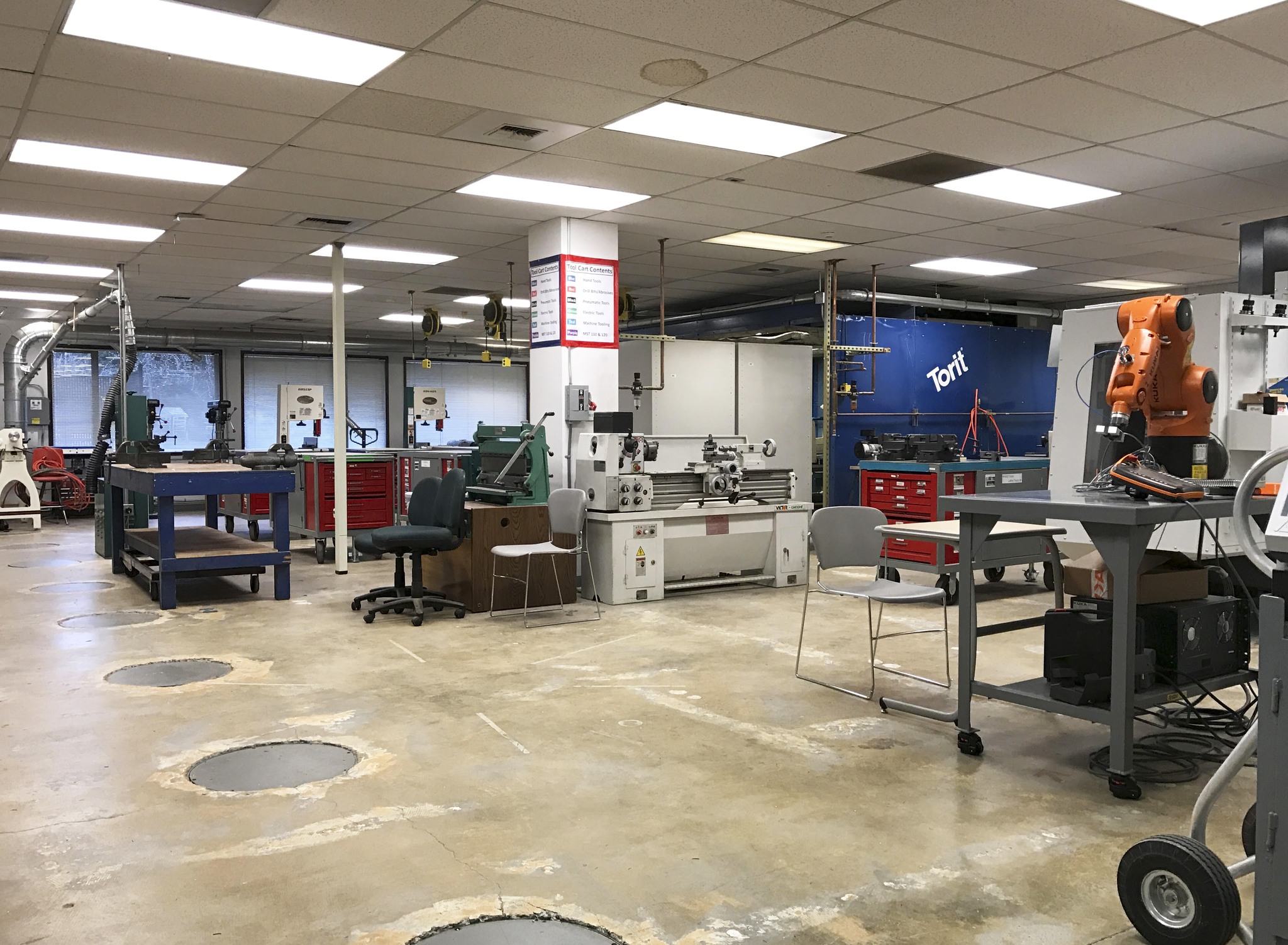ARLINGTON – Imagine if Arlington had a place where inventors, gadget geeks, artists and startup business entrepreneurs could create things through do-it-yourself approaches using the latest manufacturing and design tools.
That’s what a committee of forward-thinking city, business, education and community leaders have in mind. They want to establish a makerspace in Arlington, a collaborative place to learn and a safe place to fail.
The committee is drafting a business plan that it hopes to complete this month. The plan would be a first step in building stakeholder support to pursue funding, court user groups, acquire equipment and find a location.
A makerspace is a community workspace where people can access tools, resources and workshops in order to make, repair, invent or create anything they put their mind to doing.
“It’s really about creating a space for people to invent,” said Diane Kamionka, executive director of the NW Innovation Resource Center.
Arlington Mayor Barb Tolbert said, “The location would have a variety of specialized, cutting-edge tools, active programs and the opportunity to share ideas with others.”
Other makerspaces in the region are at Edmonds Community College, the nonprofit Snohomish County Makers’ SnoCo Makerspace at Everett’s Paine Field and at the Future of Flight Aviation Center.
David Voetmann is designer of The Facility at EdCC. The makerspace is accessible from 5-8 p.m. when students aren’t there. Faculty and students can still access the lab during that time, but the focus turns to public use.
When people come in to access The Facility and Rapid Proto Lab to reserve time, they are asked to bring in a “napkin sketch,” Voetmann said. “A lot of great ideas die on napkins.”
Voetmann said everyone has really good ideas or an instinct to improve things in the physical world, but generally wants someone else to do the improving.
Our goal, Voetmann said, “We’re trying to save as many napkins as possible from extinction.”
Because of the broad aerospace and manufacturing base clustered around the Arlington Municipal Airport and buildable industrial-zoned land in Marysville’s north end, Arlington holds valuable potential for siting a makerspace.
“The makerspace would be a community resource contributing to a vibrant and sustainable manufacturing industry in the area that permits and encourages innovation and exploration by all elements, from entrepreneurs to large businesses in the area,” Kamionka said.
Tolbert cited the example of a would-be CEO working on a prototype problem in his garage, and how much that tinkerer would benefit from cheap, easy access to a makerspace.
“A makerspace feeds the inventor spirit, and helps businesses find places where they can solve problems,” she said.
Voetmann said collaboration is a critical component of a successful makerspace.
Since The Facility opened in August, “We had hoped collaboration would happen between our users, and we’re starting to see that it is happening,” he said. “We’re finding that people are coming more in groups because they want to learn together.”
Makerspaces can vary in how they are structured, and the equipment they make available to users, Kamionka said. It’s a safe bet that if equipment is meant to match the needs of the local business and manufacturing industry, that means innovative, advanced precision machining and computer numeric control equipment, laser cutters, 3D printers and other devices that can be used for prototyping.
Designing and opening a space can be a daunting task. Voetmann offered advice for the proposed makerspace in Arlington.
He said it takes tools, training and community. “We wouldn’t make it without any one of those.”
“The biggest things to figure out are equipment and staff,” he said.
Kamionka said it’s important to get the makerspace concept in front of the business community so that it can understand how it would benefit and meet its needs.
“The outcomes we would hope to see are workforce and small business growth, but a makerspace also creates a community that generates energy and social capital for members, with those skills flowing back to their businesses and helping with retention,” she said.
John Bonner, vice president of Corporate and Workforce Training at Everett Community College, home of the Advanced Manufacturing Training and Education Center, recently joined Kamionka and Tolbert on a visit with key employers in the area to find out how they might use a makerspace that supports their goals and needs.
Bonner said the conversations were encouraging.
“They mentioned how important it is for industry to have a space to innovate and try new things,” Bonner said. Manufacturers are always looking for innovative ways to bring down costs in their manufacturing processes, but they can’t take down machines and work cells to do it. A makerspace can give them another place to innovate off-line.
As one of eight finalists nationwide in the America’s Best Communities competition, the makerspace initiative is one of 11 projects included in the Arlington-Darrington team’s strategy for economic revitalization.
A coworking space in Darrington will open soon as another of the 11 local ABC projects, and its goals are similar to a makerspace. It will focus on individuals who work remotely or have a home-based business. It will have access to high speed internet.
Bonner said the makerspace concept has to resonate with young people, who could be the beneficiaries of living wage jobs in advanced manufacturing and entrepreneurship.
“They need to know about the opportunities that are available in advanced manufacturing,” he said. “The technology has changed so much. The makerspace would let them see and try some of that high-tech equipment.”
A makerspace could also potentially encourage STEM careers at a younger age, Bonner said. The opening of AMTEC North at Weston High School has emerged as a great partnership between the school district and city that is helping fill that skills gap for students in the Arlington area, he added.
“Down the road, a skills gap is coming,” Bonner said. “We need to be ready for it.”



